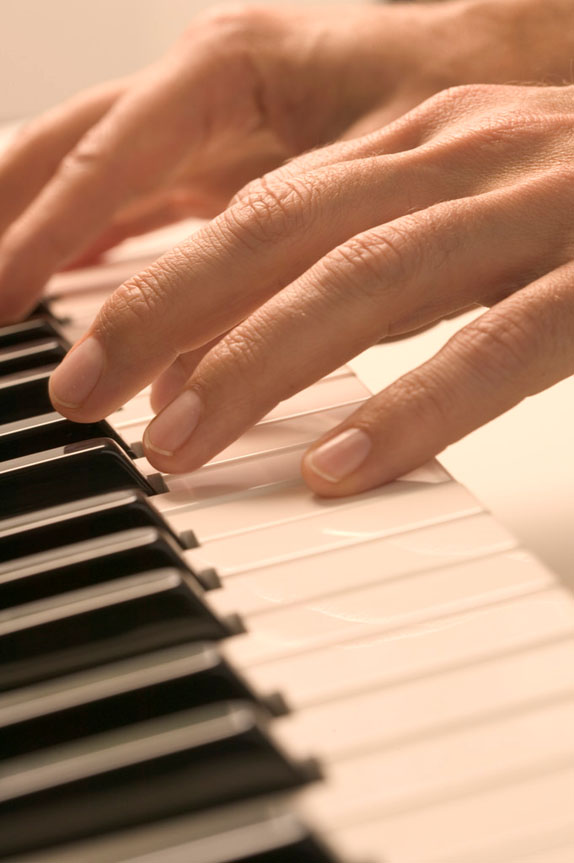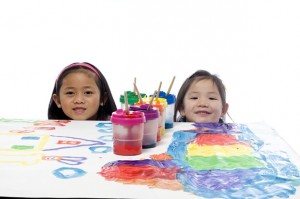That’s the wonderful thing about crayons. They can take you more places than any starship.
Star Trek: Next Generation Guinan to Ensign Ro, 11/02/92
A few reminders of the power of the arts
The power of one teacher: Many years ago Denise Shekerjian (1991) wrote a book called Uncommon Genius. In it she was looking for discernible commonalities and the creative processes of forty recipients of the prestigious MacArthur Fellowship. These fellowships  are given annually to persons whose accomplishments show exceptional promise in helping develop differing aspects of human knowledge through creative leaps. Thus, the MacArthur prizes have been labeled as “genius grants” with funding coming from the John D. and Catherine T. MacArthur Foundation. (The name of the foundation may be familiar due to the fact that it frequently appears as a sponsor for many National Public Radio and Public Television programs.) Prize amounts vary, and are often hundreds of thousands of dollars. These MacArthur fellowships cannot be applied for, nor are they limited to any particular field of interest. Indeed, former recipients bridge the gamut of professions and have included a woodworker, and a clown, as well as renowned scholars like Howard Gardner, for his conceptualization of Multiple Intelligence Theory. Also, prizes have even been awarded to students like Princeton’s Mayan epigraphist, David Stuart.
are given annually to persons whose accomplishments show exceptional promise in helping develop differing aspects of human knowledge through creative leaps. Thus, the MacArthur prizes have been labeled as “genius grants” with funding coming from the John D. and Catherine T. MacArthur Foundation. (The name of the foundation may be familiar due to the fact that it frequently appears as a sponsor for many National Public Radio and Public Television programs.) Prize amounts vary, and are often hundreds of thousands of dollars. These MacArthur fellowships cannot be applied for, nor are they limited to any particular field of interest. Indeed, former recipients bridge the gamut of professions and have included a woodworker, and a clown, as well as renowned scholars like Howard Gardner, for his conceptualization of Multiple Intelligence Theory. Also, prizes have even been awarded to students like Princeton’s Mayan epigraphist, David Stuart.
While author Shekerjian actively looked for generally significant commonalities between and among prize recipients, especially as these concerned attitudes, life-circumstances, or creative processes, she found few consistent similarities existed. However, during her interviews and analysis of collected data, there were two strong commonalities that emerged. The vast majority of the recipients stated that there were two things important in their lives and in the development of their creative gifts and talents — parents and teachers. The first important commonality was having parents (or a parent) who recognized and believed in their potential. Many participants reported that their parents strongly supported the development of their talents, or actively encouraged their dreams and aspirations. The second most frequent commonality was that the majority of recipients remembered having had at least one teacher who believed in them and actively cultivated the development of their talents, or they reported stories of teachers who readily made accommodations for learning differences, or ones who supported their hopes and dreams of the future.
Thus, the power of teachers to influence positive changes in students is immense. This is odd because most teachers that I know don’t think of themselves as persons having great power. But we can and do affect futures all the time. With a word or look we can make a child hate our subject forever. With this same power we can encourage a child to love a book, a play, an artist, or a piece of music– for a lifetime.
Relationally, in these chaotic times so many of today’s youths seem troubled, or they appear disenfranchised from either family or society, or they are lost in cycles of violence and self-destruction. This is why it is important to remember that, like those reported by the MacArthur Fellows, teachers have this immense power to impact lifetimes in many positive ways. Good teachers have the power to connect young hearts, and souls, and minds to the continuance of human knowledge, achievements, and history. Indeed, like the grandmother’s recollections in my poem My soul’s own voice indicate, teachers have the power to help students find themselves by discovering hidden talents, or by helping students channel youthful energies into creative means of self-expression that can last over a lifetime.
What does music give to you? “A soul, a depth!” Vern Lundquist, CBS sports announcer, 3/26/2017
Connections to the heart and soul: I think that we need to remember that channeling young energies to create is one of the most important parts of the legacies of teaching the arts. Creating those strong emotional connections to the inner self, to the passions of the heart — these are some of the things that participation in the arts does best. Through the arts students are given the power of voice and presence, be it through the visual arts or performance. Thus, participation in the arts offers our youth the ability to develop strong senses of positive, creative self-identity.
Putting it in perspective: During these days when schools have become so very political, when everything seems to be concentrating on “standards” and “measuring outcomes,” we are danger of losing our potential to help students connect mind, heart and soul to self. Mellissa Kirsh of the NY Times indicated that, “The best art makes us question the received ideas we’ve internalized and, just maybe, offers us ideas for living differently. We need to be reminded of what really counts in education. We need to remember that some of the rewards of participating in the arts are not measurable in terms of bell-shaped curves, or standardized tests. Indeed, we have no national norms concerning psyche, or heart quotients. Instead, we must look at achievement as the legacies of patterns that grow and flourish over the courses of lifetimes.
Some of the most potent legacies of participation in the arts are the abilities to:
- Create or find and solve complex and intriguing problems;
- Channel visions into products;
- Translate dreams and imaginings into things that are real and tangible;
- Relate creatively and direct intense emotions into expressive products;
- Experience the productivity and exhilaration of active, intense mental concentration melded with physical action or interpretation (or the “flow” state);
- Learn to become persistent in working toward something that is personally meaningful;
- Practice patience in advancing toward goals.
These legacies are important not only in being productive, but they are key in living happy, contented lives. In this way the arts directly relate to the development of emotional health and a sense of wholeness, as well as being important in developing sensitivity to and sharing in the creative patterns and wonders of the cosmos.
For those who recall and commit to the importance of having at least one inspiring teacher who made a difference, I call to you to make a conscious choice to walk down less traveled trails and remember that there are things in education that are much more important than printed test scores in local papers. It is important for us to recommit to the fact that good teachers often open doors to students’ minds when they enter through the passages they create through students’ emotions, inner beings, and senses first. And it is important for us to remind others that these entries into young minds are often a result of participation in arts programs. These are some of the reasons why participation in the arts is so important at life levels — the arts teach many skills that are part of no other aspect of the curriculum.
Students who create do not destroy. Sister Thomasina
References:
Shekerjian, D. G. (1991) Uncommon Genius: How Great Ideas Are Born. Scholastic
A poem about the power of teachers – My soul’s own voice
